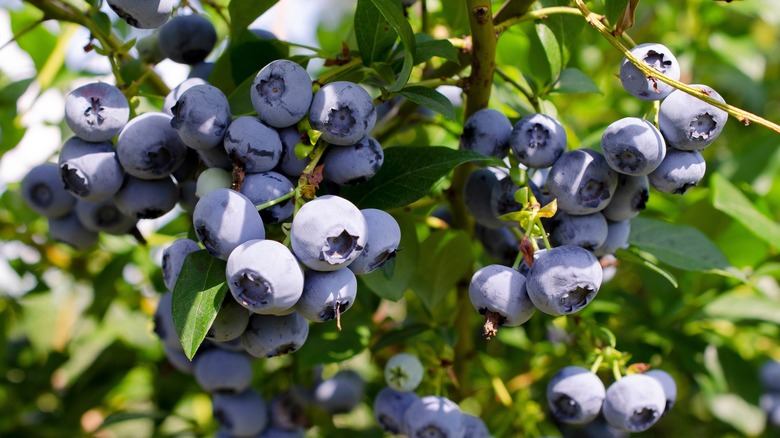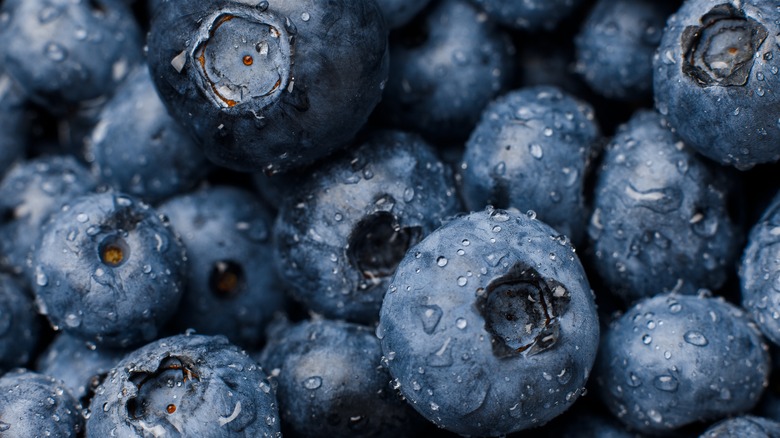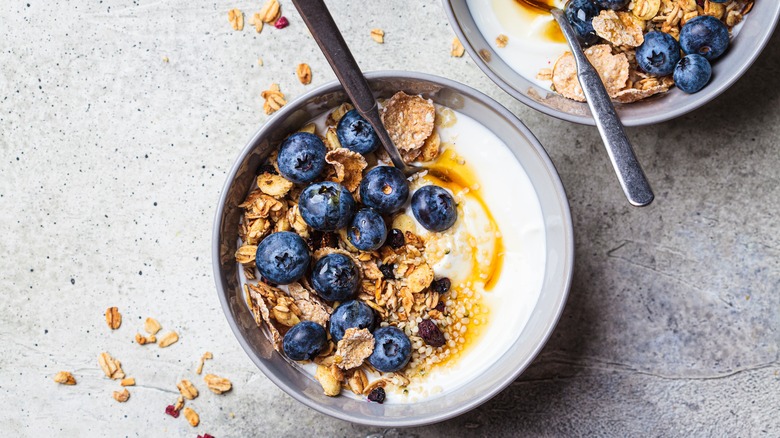When To Wash Blueberries For The Best Texture Results
Blueberries, like most fruits, are a bit delicate when it comes to preparation, storage, and shelf life. However, these sweet little berries are a perfect addition to just about anything, from pies to parfaits and to a buttery stack of pancakes. In short, we love them despite the fact that they require a bit of extra care.
North America's blueberry season lasts from April to September, though the peak season depends on what part of the country your blueberries come from. They're generally available in grocery stores year-round. With that said, there's nothing quite like freshly-picked blueberries, and you'll want to care for them in the best way possible — which starts with the washing process.
When it comes to rinsing these tiny fruits, make sure to wait until the last possible second. Washing them all at once could result in mushy blueberries, and it could even facilitate quicker mold growth.
When to wash blueberries
Whether you picked them yourself or purchased them from your local grocery store, you shouldn't wash blueberries the moment you walk in the door. While some fruits are fine to wash in advance, blueberries have a delicate texture; they don't like to get wet.
First things first: You definitely need to wash blueberries. Because they don't have peels the way oranges and avocados do, their exterior takes in every part of the growing process, from the dirt they grow in to the hands that pick them. However, you should only wash them right before you eat them, or you risk letting the berries go bad more quickly.
"Washing produce and then putting it in the fridge can shorten shelf life due to increased moisture levels," Meredith Melendez, a Rutgers assistant professor and agriculture agent, told Real Simple. Additional moisture means blueberries can grow mold more easily.
How to wash and store blueberries properly
To wash blueberries, place them in a strainer or colander and thoroughly rinse them with cold water, and don't use soap. The FDA doesn't recommend washing any produce with soap — produce is porous, meaning that soap could leach into the food and ultimately be ingested by humans.
Blueberries should always be refrigerated, and they should always have air flow. It's perfectly fine to store them in the perforated plastic containers they're often sold in; this will allow them access to plenty of air and slow the mold-growing process. If you pick blueberries and don't have a perforated container, simply store them in a standard bowl. Because blueberries need the most air flow possible, avoid storing them in the crisper drawer; keep them in the open part of the refrigerator.
Blueberries can be frozen, too. After washing them, store them in a single layer until they're fully frozen. From there, pop them into a resealable bag or container, and they'll keep in the freezer for six to 10 months.


